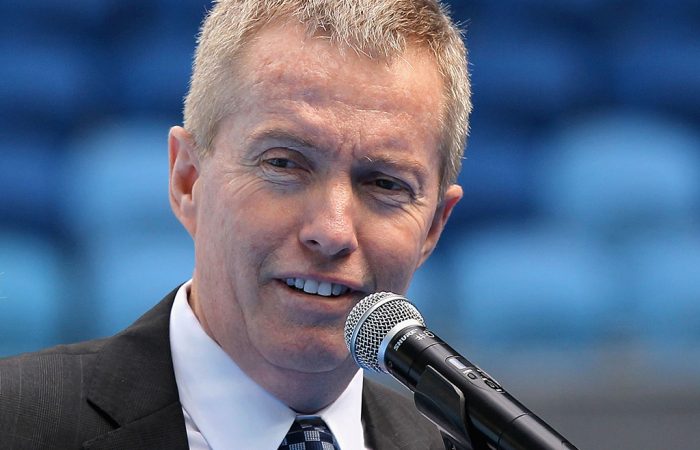Tennis Australia addresses United Nations forum on gender equality
Tennis Australia CEO Craig Tiley has addressed the 2017 Women's Empowerment Principles (WEPs) Forum in New York.
Melbourne & Olympic Parks, Olympic Blvd, Melbourne VIC • 3001, Australia, 16 March 2017 | Tennis Australia

Tennis Australia CEO Craig Tiley has addressed the 2017 Women’s Empowerment Principles (WEPs) Forum in New York today in a bid to further promote gender equality in sport and across all business sectors.
Mr Tiley, a WEPs signatory, spoke to a diverse group of leaders from business, civil society, UN, government and academia to discuss ‘The Women Empowerment Principles Gap Analysis Tool’, an online platform developed by the United Nations to help identify strengths, gaps and opportunities in existing gender equality policies and practices.
“Equality is at the very heart of our sport, and we are proud to be leaders in driving for change across the sporting landscape, both in Australia and on an international scale,” Mr Tiley said.
“We embarked on a journey with the United Nations last year, hosting Australia’s first United Nations Women’s Economic Empowerment Consultation that brought together 36 business and community leaders, gathering stories and actions which formed a report that was handed to the UN Secretary General in September 2016.
“From that pivotal moment, our work with the UN has been one of momentum and progressive action for real change, signing the United Nations Women’s Empowerment Principles and partnering with UN Women National Committee (NC) Australia to promote gender equality.
“It has been a great honour to speak at the 2017 Women’s Empowerment Principles Forum in New York, continuing to be champions for change not only in sport, but across all business sectors,” Mr Tiley continued.
Women’s economic empowerment has also been noted as extremely beneficial for business. Studies such as the McKinsey Global Institute – The Power of Parity report predict a $12 to $28 trillion increase to the GDP in 2025 by bridging the gender gap.
Mr Tiley also commented on the contribution tennis has made to the sporting world.
“At Tennis Australia, we award equal prize money as well as fund and support our representative teams, from elite to junior, equally. In Australia, tennis has also shown to be one of the few sports to boast an almost equal participation rate between genders. Nonetheless, there is still more that can be done in this area and we are determined to continue our pledge to influence real change and support women’s empowerment.”
Tennis Australia gender equality fast facts
Australian Open 2017 Celebrates Inspirational Women
The Australian Open held its second annual Celebration of Inspirational Women as part of the women’s semifinals on Thursday 26 January.
The 2017 event focused on global leadership and guests heard from inspirational women in fields as diverse as human rights, medicine, the arts, media and sport.
Female coaching scholarships
Australia’s top female player, Sam Stosur, launched a female scholarship program in June 2016, aimed at encouraging women to pursue their Tennis Australia coaching qualifications. Thirty five scholarships have now been awarded to women across Australia.
Scholarships are available in four coaching categories: junior development, club professional, master club professional and high performance. Recipients will undertake coaching courses in a supportive and innovative learning environment, with access to mentoring and networking opportunities.
Female player scholarships
Tennis Australia provides national scholarships for a number of female athletes, providing the following support and services:
WTA Australian Female Camp
The WTA Australian Female Camp is an initiative launched in 2016 to unite female Australian professional players, providing on and off-court advice in a supportive environment, including training, travel tips, educational online opportunities and more.
Fit2 Camp
“Females in Tennis” with a “Future in Tennis (Fit2) Camp is a new nation-wide initiative aimed at developing female roles within tennis by exploring the number of exciting careers opportunities made available through the sport.
Over three days, female tennis participants between the ages of 15-18 attended a series of on-court and off-court workshops and seminars, with Tennis professionals helping attendees get a new-found understanding of the different types of tennis careers on offer.
National Female Camps
In 2017, Tennis Australia will host a series of national camps aimed at junior athletes aged 12-16 years. Each camp will be themed to help address a particular issue/topics, providing mentoring and support in a fun, energetic environment.